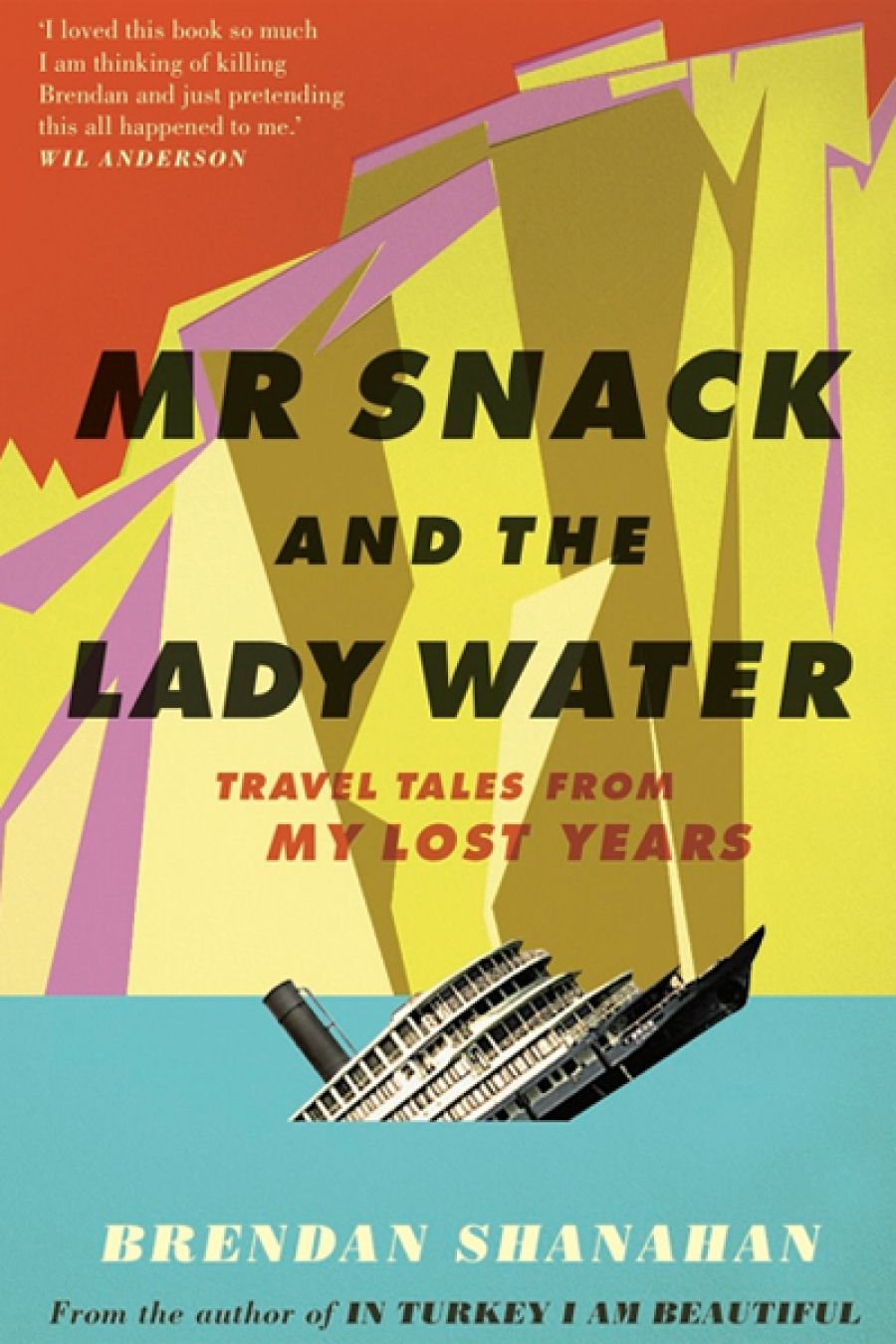
- Free Article: No
- Contents Category: Travel
- Custom Article Title: Alex O'Brien reviews 'Mr Snack and the Lady Water' by Brendan Shanahan
- Review Article: Yes
- Article Title: Mr Snack and the Lady Water
- Online Only: No
- Custom Highlight Text:
Much travel is unpleasant (with over-expectations, too many tourists, and long distances from Australia), but even the sedentary or timorous persist with it in some ‘misguided duty to culture’, as Brendan Shanahan describes in his first collection of essays, Mr Snack and the Lady Water. Assembling journeys from the mid-1990s until now, Shanahan recounts stories that range from the inequities of post-Apartheid South Africa to his experience with so-called ‘dental tourism’ in the Philippines. The result of these peripatetic years has been, as the book’s subtitle suggests, largely uneventful: lost to the author and this reader alike.
- Book 1 Title: Mr Snack and the Lady Water
- Book 1 Subtitle: Travel Tales from My Lost Years
- Book 1 Biblio: Melbourne University Press, $24.99 pb, 239 pp, 9780522862232
In the opening essay, Shanahan finds himself aboard the eponymous Lady Water, a squalid Chinese barge, which takes him on a torturous trip along the Yangtze River. After a mix-up with his cabin (what is any travel story without such confusion?), the author is coupled with the no-less-eponymous Mr Snack, a sluggish Chinese gentleman with a taste for salted treats and insipid television. Of the country more broadly, Shanahan is unconvinced: ‘Inhumane, bleak, polluted, nationalistic, money-hungry: you could say that about a lot of places but only China seemed to be proud of it.’ While the putative details of any place routinely prove true (cultures have a remarkable capacity to be their own variety of ordinary), it is Shanahan’s persistence with common biases that enervates the collection’s light-hearted, sometimes comic tone.
Where the author displays his greatest comic capacity is in dealing with the various orificial concerns of his destinations (‘Shit is to travellers in India what the weather is to the English’). While such aphorisms may not endear the subcontinent to the reader, they are among the only times when the book doesn’t disappear into mistranslation, and when something resembling a universal truth, however ordinary, is revealed.


Comments powered by CComment